Nation this week

Bangladesh Bank said it would take the initiative for the mergers and acquisition of banks from March 2025 if they fail to do so voluntarily by December this year. Executive Director and Spokesperson Md Mezbaul Haque briefed reporters at the central bank headquarters. In December 2023, the BB issued a guideline, known as the Prompt Corrective Action (PCA) framework, to give a procedural direction for mergers and acquisitions amidst the deteriorating financial condition of some banks and financial institutions.
The move has stoked concerns among many, including savers. However, Haque said: "The protection of depositors' money will be the first priority in the case of mergers and acquisitions of weak banks with sound ones. The protection of strong banks will also be a priority." The central bank will issue a detailed guideline on mergers and acquisitions, he said. Both weak and strong banks will be evaluated by audit firms before the BB takes any decision on their mergers.
Bangladesh Bank released the first ever guideline for the appointment of independent directors in non-banking financial institutions in order to protect the interest of the depositors and general shareholders. Prior to the guideline, publicly listed NBFIs had to appoint independent directors as per the corporate governance rule of the Bangladesh Securities and Exchange Commission, said Kanti Kumar Saha, CEO of Alliance Finance PLC.
In a circular on the appointment of independent directors, the central bank said an NBFI can appoint a maximum of two independent directors in its 15-member board. It also fixed criteria - work experience, minimum and maximum age and other qualifications - which the NBFIs should comply with at the time of hiring independent directors. The minimum age of an independent director must be 45 years and the person can never be over 75 years of age. They have to have a graduation degree in economics, banking, finance, business administration, law and accounting, said the central bank.
Foreign Secretary Masud Bin Momen has rejected any idea of Rohingya integration into Bangladesh and requested all humanitarian actors including UNHCR and IOM to facilitate the safe and voluntary return of Rohingyas to their homeland, Myanmar. He reiterated Bangladesh's commitment in finding a durable solution to the protracted Rohingya crisis. Masud made the statement at the launching ceremony of 2024 Joint Response Plan (JRP) for the Rohingyas, held in Geneva on March 13.
The Foreign Secretary emphasised that without materialisation of the principle of equitable burden and responsibility sharing by the broader international community, host country Bangladesh, UNHCR, IOM and WFP would not be able to provide humanitarian assistance and protect the Rohingyas. The Foreign Secretary said that alternative pathways could be the supplementary efforts to ease the burden of Bangladesh. He informed the international community that each year 30,000 newborns are being added to the Rohingya refugees in Bangladesh.
Western countries raised questions over the labour situation in Bangladesh at the ongoing 350th Session of the International Labour Organisation (ILO). They also remarked that necessary reforms in the labour law have not been carried out while attacks and tortures on the workers have not stopped. However, several countries, including China, India, Saudi Arabia and Iran praised the efforts of the Bangladesh government to improve the labour situation.
The labour situation in Bangladesh was reviewed during the session being held in Geneva Switzerland. law minister Anisul Huq highlighted the measures taken by Bangladesh in compliance with the roadmap of the ILO. He reiterated the strong political commitment of Bangladesh to amend the existing labour law and said if Bangladesh doesn't get a proper recognition of its efforts to improve the situation, then it may lead to a lack of confidence with the international stakeholders, including the ILO.









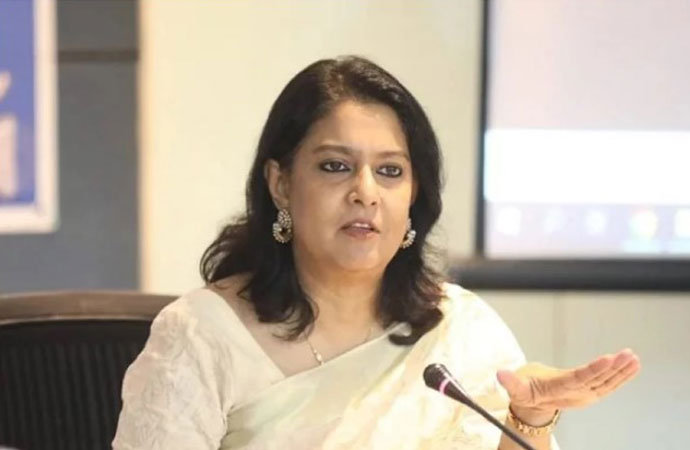
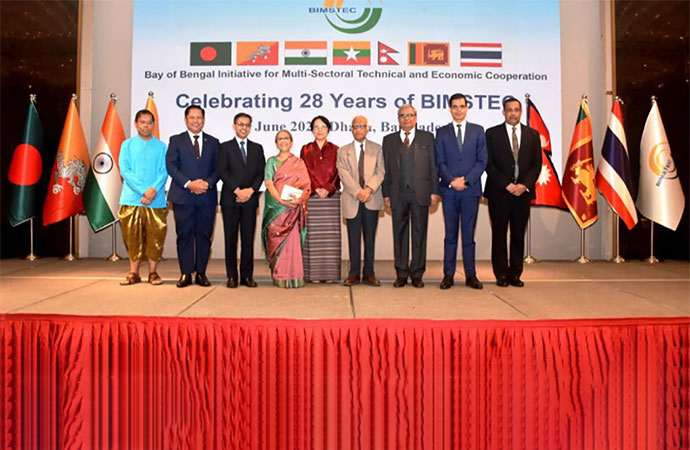








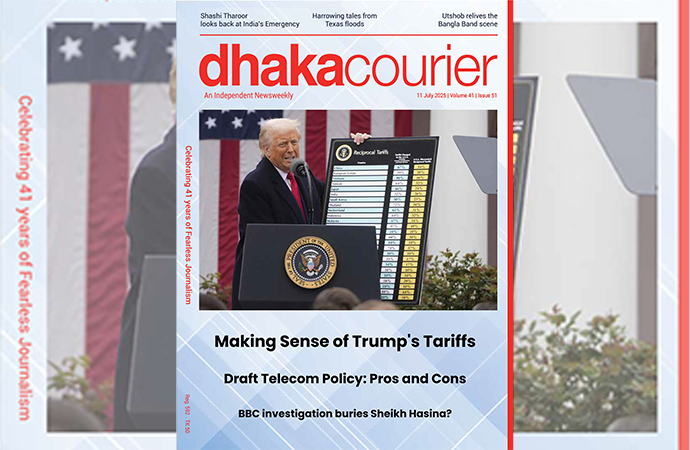
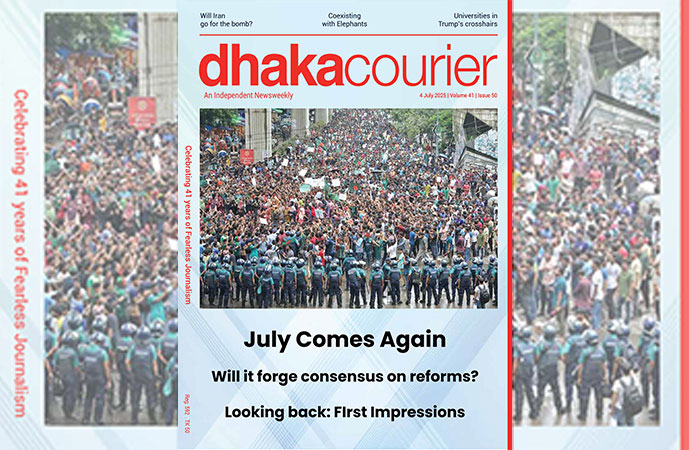
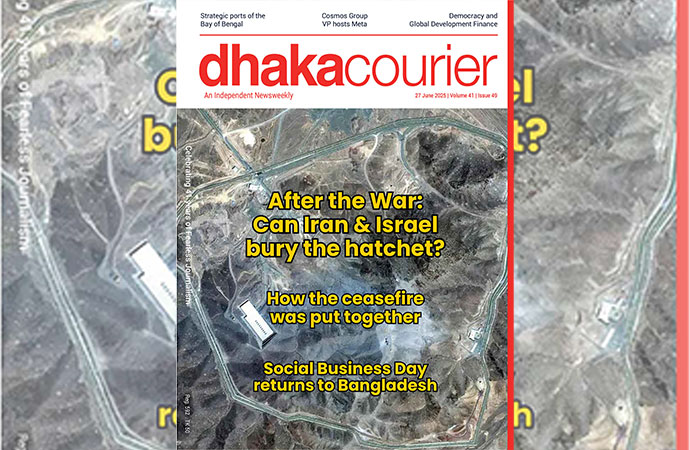
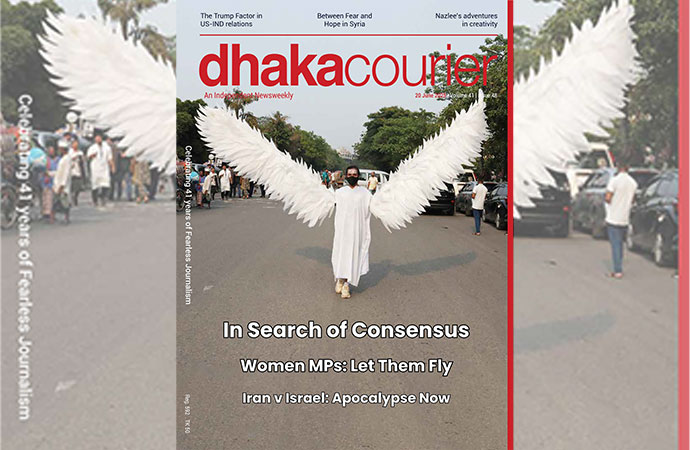
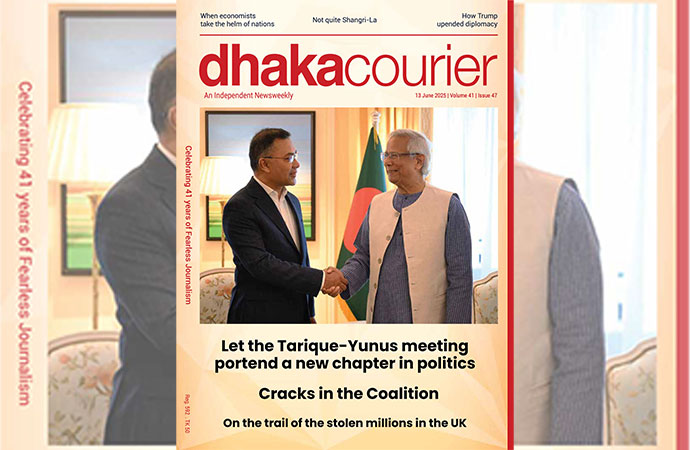
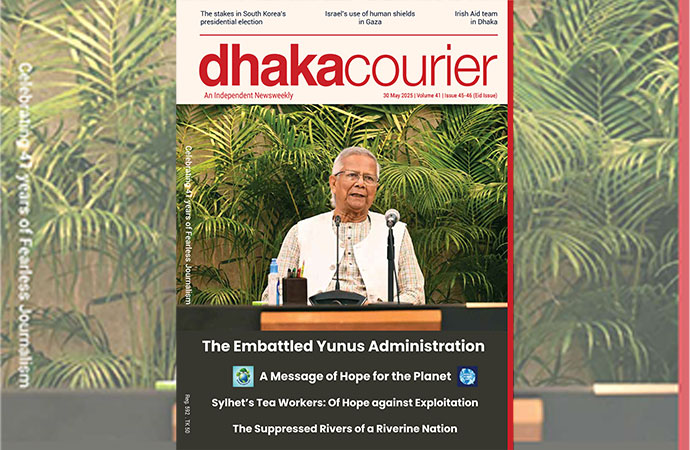
Leave a Comment
Recent Posts
‘Married to Journalism’: Adieu ...
The journalist community of the country united this week in bidding go ...
Reimagining the OST: ‘Utshob’ ...
One of the most successful Bangladeshi films in recent years, 'Uts ...
Harrowing stories of rescue emerge from Texas floods ..
The Resilience of World Trade
Heeding the Lessons of India’s “Emergency”
Sunamganj’s age-old boat market struggles as monsoon ..